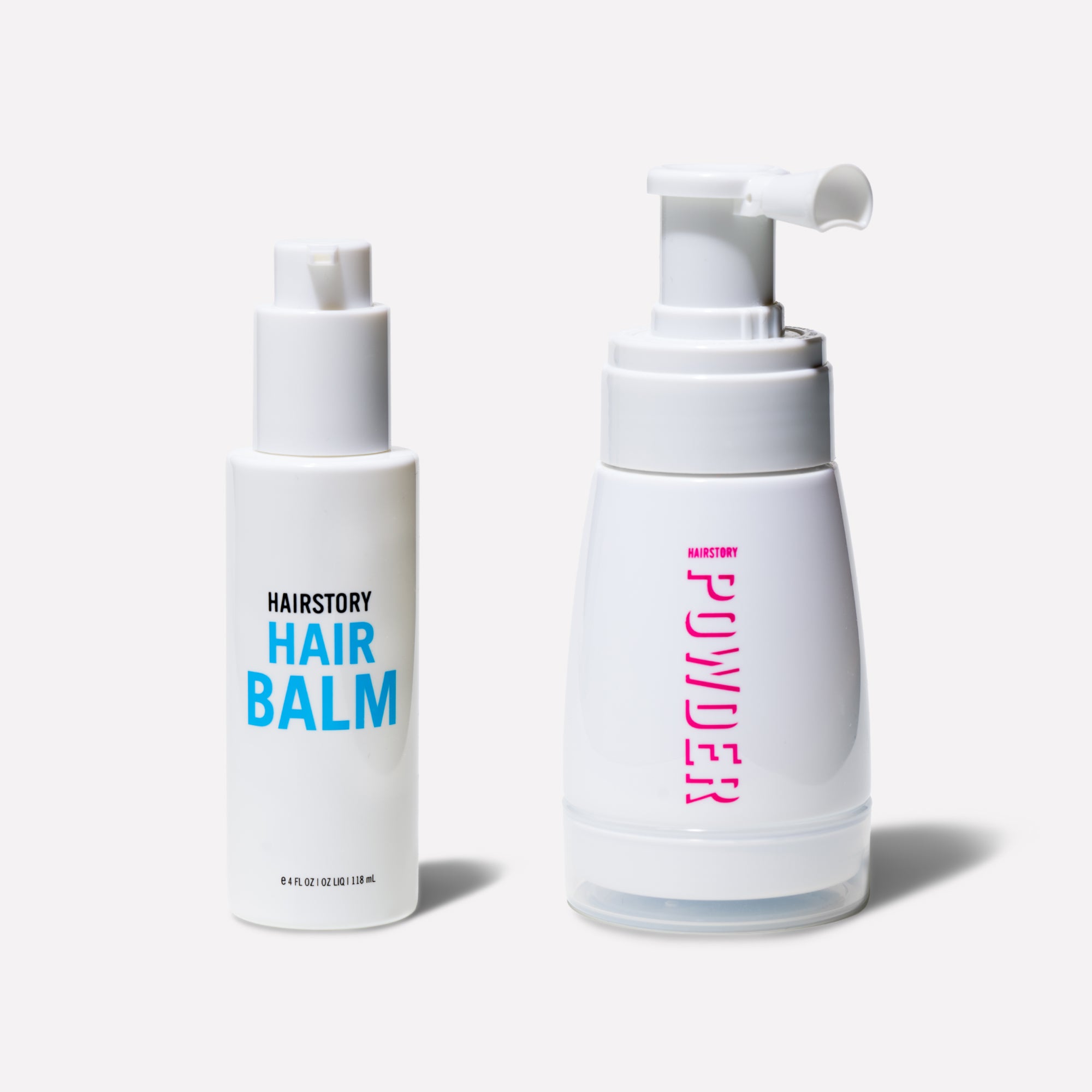EMBRACING THE TRANSITION: HOW TO GO GRAY GRACEFULLY
Say it with us: “Gray” is not a four-letter word. While there’s no shame in covering your gray hairs, there’s certainly no shame in flaunting them proudly, either!
Like it or not, gray hair is inevitable. You might not see your first silver strand until you’re well into your 30s, or it might unexpectedly pop up while you’re still a teen. Since preventing gray hair isn’t an option—you can’t stop Mother Nature, after all—all you can do is decide how you want to handle your grays.
Depending on your hair color and type, you might want to cover your grays instead of letting them grow in, and we get it! Making the full transition can definitely feel daunting. But if you’re ready, good news: There’s no shortage of ways to deal with your natural grays.
To get the lowdown on how to go gray gracefully and naturally, we talked to an expert: Hairstory ambassador Whitney Lichty, aka Silver Strands of Glitter, who’s been giving us major hair envy since 2019.
So, why’d she decide to ditch the dye and embrace her grays?
“My decision to grow my natural hair color started way before I stopped dyeing my hair,” says Whitney. “I spent years thinking about it, researching it and trying to understand the reasons behind why I felt the need to color my hair for so long.
“When I finally started my journey, one of the biggest supporters, aside from my husband, has been the community that I found on Instagram—not only growing and documenting their natural hair color but embracing it, embracing aging and encouraging self-love. My hope was that I could give that same kind of encouragement to others.”
WHAT’S THE BEST WAY TO TRANSITION TO GRAY HAIR?
Going gray gracefully can be a delicate matter because it’s not a one-size-fits-all process. Once the first grays start appearing, there’s no way of knowing how quickly the others will follow suit. It could take decades for your hair to go totally gray, or just a few years. There are exceptions, of course, but while a condition like poliosis or extreme trauma can cause your hair to suddenly turn white, you’re more likely to come out of it with a streak like Rogue from X-Men rather than fully white hair like Storm.
When it comes to transitioning to gray hair, there’s no one way to do it. There are all sorts of factors to consider, including your natural color, hair type and how much of your hair is already gray.
“There are many ways that you can transition your hair [to gray],” says Whitney, “including having your hair dyed to match your roots, adding lowlights or highlights to help with the line of demarcation [i.e., the line where your pigment meets the grays], cutting your hair short or simply letting your natural hair color grow out.”
Her advice? “Meet with a trusted stylist and come up with a plan that will work for you and your hair.”
Here are a few of the options you might consider:
Dyeing Your Hair to Match Your Roots
For the most part, this approach will be simpler the lighter your hair is. Blondes generally have an easier time dyeing their hair, in part because they don’t have to bleach it first the way those with brown or black hair often do before coloring it.
No matter the color, though, dyeing hair that’s already been dyed can be particularly tricky because that color will have to be stripped before the gray dye can be applied. With a little patience, though, any shade of hair can be dyed gray—you just need the right colorist.
First, though, ask yourself this: Is the reason you’re considering this route because you’re sick of the upkeep that goes along with covering your grays, and you think this is a sort of one-and-done option? If so, keep in mind that there is a certain level of maintenance involved with caring for hair that’s been dyed gray.
For instance, lighter shades of gray hair dye tend to fade faster than darker shades, so you’ll have to spend more time and money on maintaining the look. As for how often you can dye your hair, it really depends on how your hair responds to the dye. Washing your hair less often (using New Wash makes that easy), adding Purple Color Boost to your New Wash, limiting heat styling and using a heat protectant like Hairstory Dressed Up will help keep the dye from fading too quickly.
Adding Lowlights or Highlights
This option is similar to the above, but it’s not as much of a commitment and allows you to keep your pre-gray color longer by creating a softer contrast between your pigmented hair and your gray hair.
If you have fully gray roots, you can also talk to your colorist about giving your hair an ombre effect to soften the transition between the roots and your pigmented hair.
Cutting Your Hair Short
If you have a distinct line of demarcation, lobbing off all the hair below it is by far the easiest method for transitioning to gray hair. Search for images of pixie haircuts or try pinning your hair up to give yourself an idea of what it’ll look like short.
Letting the Grays Grow Out
Of course, you might not be ready for a big cut like that, especially if you’re used to having long hair. Letting your new natural color come in is another easy way to go gray, though this can be frustrating depending on how fast your hair grows. You also might not love the way it looks if your once-dark hair is slowly growing in a light, silvery gray. If your line of demarcation is particularly pronounced, though, there’s a simple way to camouflage it.
“Playing with different hairstyles while you are [going gray] can help you find different styles that are better at disguising your line of demarcation if you are feeling self-conscious or help you show off your silvers if you are feeling confident,” says Whitney.
WAYS TO STYLE GRAY HAIR
Dealing with what can feel like an excruciating wait for your grays to grow long enough? Whitney has some great advice for that as well.
“Take pictures!” she says. “When you are dyeing your hair, it can feel like your roots show up after one week, but when you are purposefully growing out your roots, time can feel like it’s at a standstill. There were months when I wasn’t even sure my hair was growing at all. Documenting your grow-out can be a great visual representation along the way.”
You could even take a page out of her book and post your journey to Instagram, where there are plenty of other people transitioning to gray hair.
MAINTAINING YOUR GRAY HAIR
In the long run, letting your hair go gray will save you both time and money, but it’s still hair that you need to take care of, and it comes with its own set of special requirements.
Managing New Textures
When hair turns gray, the texture often changes, which means you might need to rework your haircare routine.
“Managing the changing texture of your gray hair will mean something different for each individual,” says Whitney. “Part of this gray hair journey, for me, has been embracing the texture that has come with it. My gray hair is dry and is growing in a bit unruly. I make sure to deep condition weekly to keep it moisturized and help fight some of the frizz.”
While gray hair texture does vary from person to person, one thing you can almost certainly count on is having drier hair. Cut back on regular shampoos, which often contain harsh chemicals and detergents, and try a shampoo alternative like Hairstory New Wash or New Wash Rich. They both help combat dryness and maintain hydration.
Hair Cleansers
shop the collection
View More Information


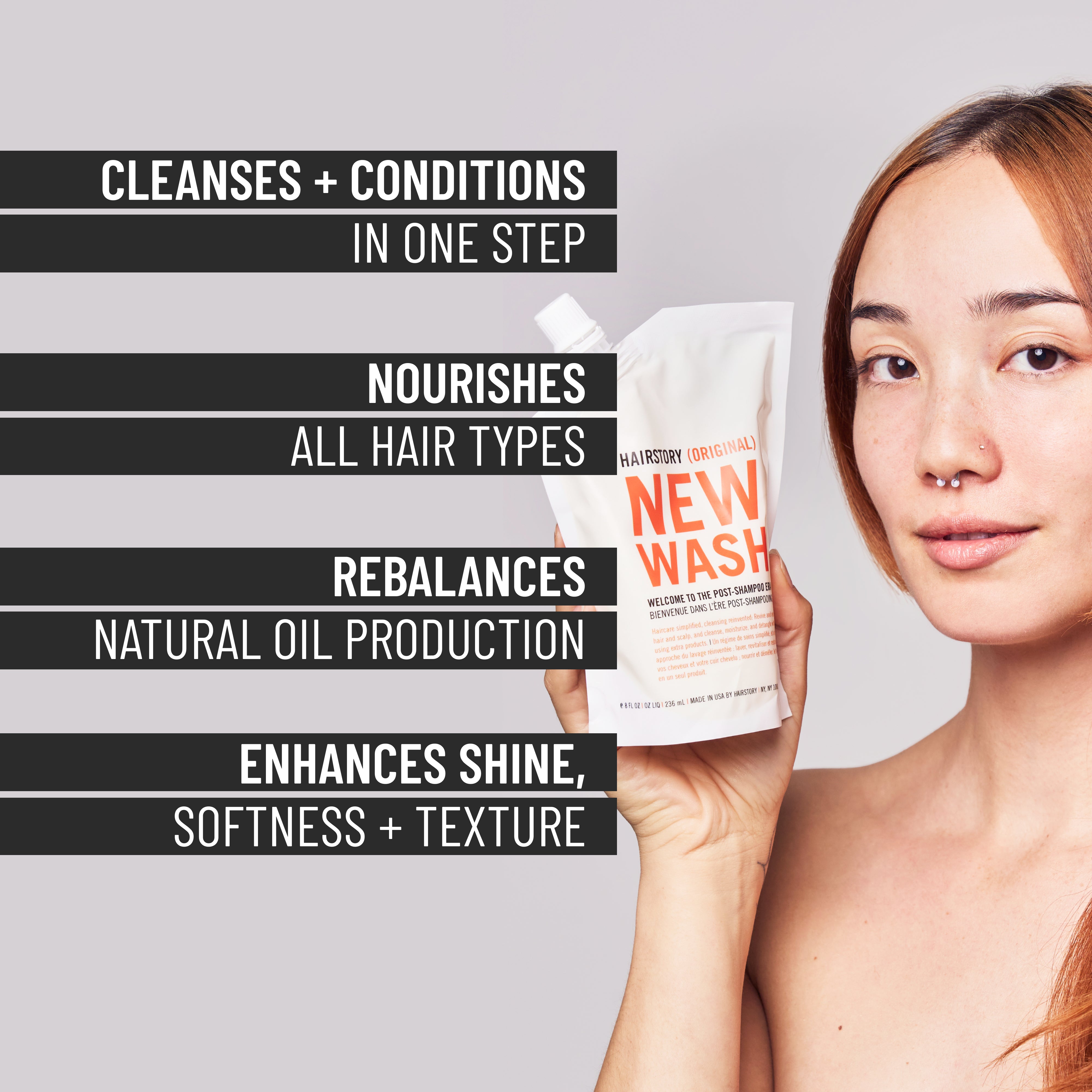
New Wash Original
View More Information


Healthiest Hair Method
View More Information


Richest Hair Method
View More Information


Clarifying Hair Method
View More Information


Pre-Wash
View More Information


New Wash Original Starter Set
View More Information


New Wash Rich Starter Set
View More Information


New Wash Deep Starter Set
View More Information


New Wash Original Trial Kit
View More Information


New Wash Rich
View More Information


New Wash Deep
View More Information

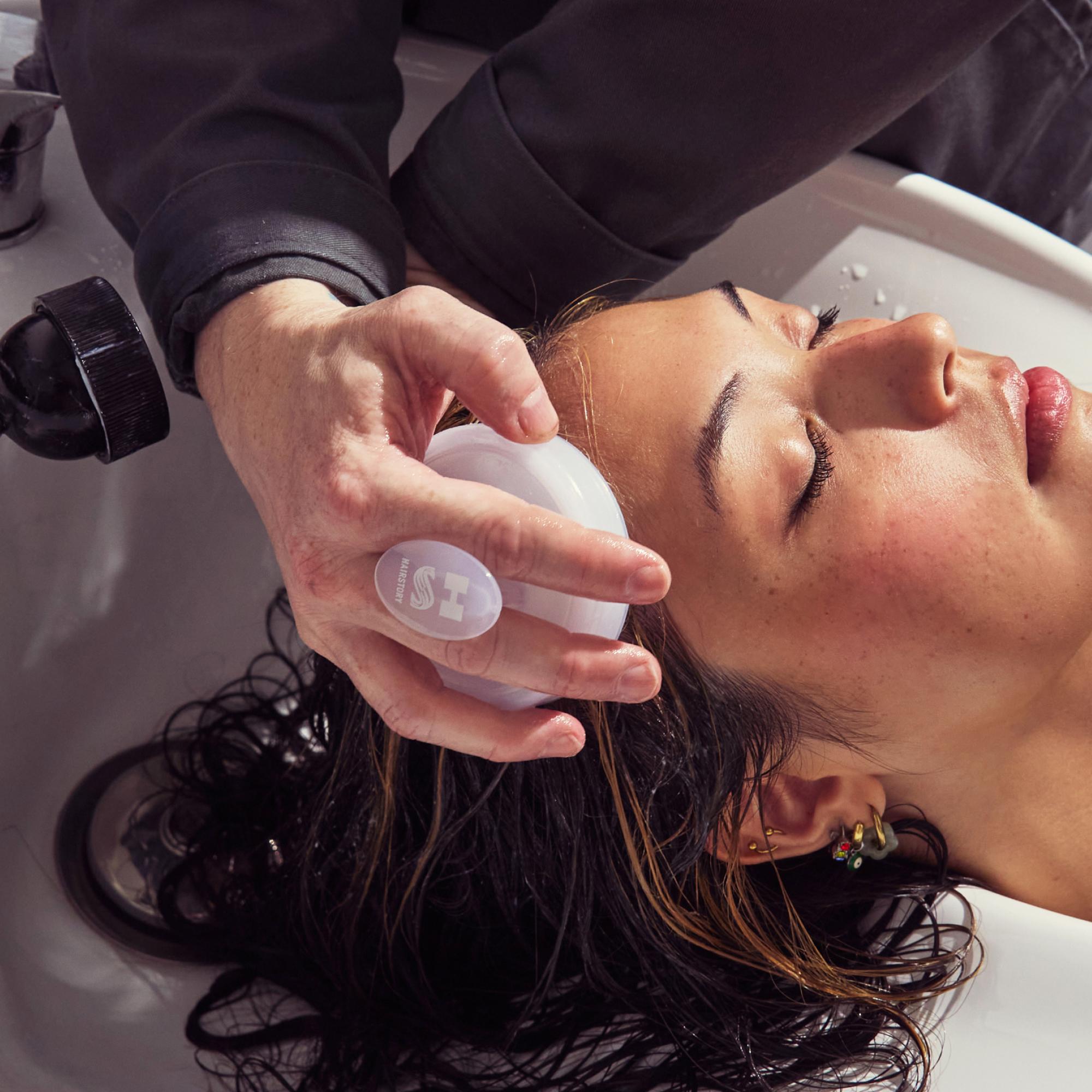
Massaging Scalp Brush
View More Information


The New Wash Method for All Hair Types
View More Information


The New Wash Method for Dry Hair
View More Information


The New Wash Method for Oily Hair
View More Information


New Wash Original and Purple Boost Duo
View More Information


New Wash Rich and Purple Boost Duo
View More Information


New Wash Original and Blue Boost Duo
View More Information


New Wash Original and Red Boost Duo
View More Information


New Wash Rich and Red Boost Duo
View More Information


New Wash Rich and Blue Boost Duo
View More Information


Anti-Brass Moisture Color Boost Set
View More Information


Anti-Brass Color Boost Set
View More Information


Beach Waves Set
View More Information


Care and Texture Set
View More Information


Beach Waves Moisture Set
View More Information


Moisture Ultra Boost Set
View More Information


Moisture and Shine Restoration Set
View More Information


Frizz Control Set
View More Information


Moisture and Volume Set
View More Information


Moisture Boost Set
View More Information


Frizz Control Moisture Set
View More Information


Vibrant Red Color Boost Set
View More Information


Shine, Gloss and Moisture Color Boost Set
View More Information


Vibrant Red Moisture Color Boost Set
View More Information


Volumizing Set
View More Information


Shine Restoration Set
View More Information



New Wash Mini
View More Information


Bond Boost and New Wash Deep Duo
Adding products like Hairstory Hair Balm, Dressed Up hair protector and Undressed texturizing spray into your styling product rotation will also help keep hair moisturized.
View More Information


Primer
View More Information
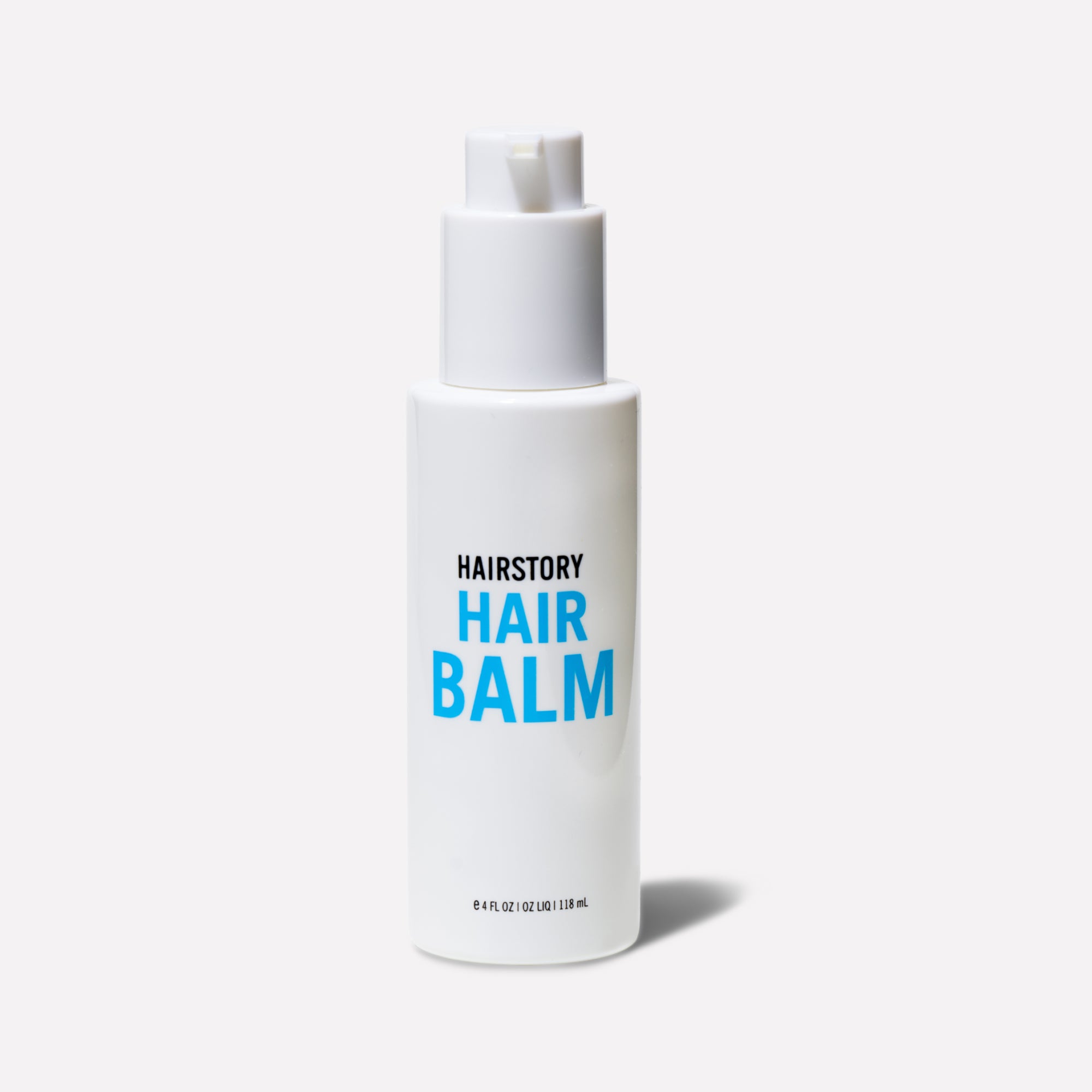

Hair Balm
View More Information
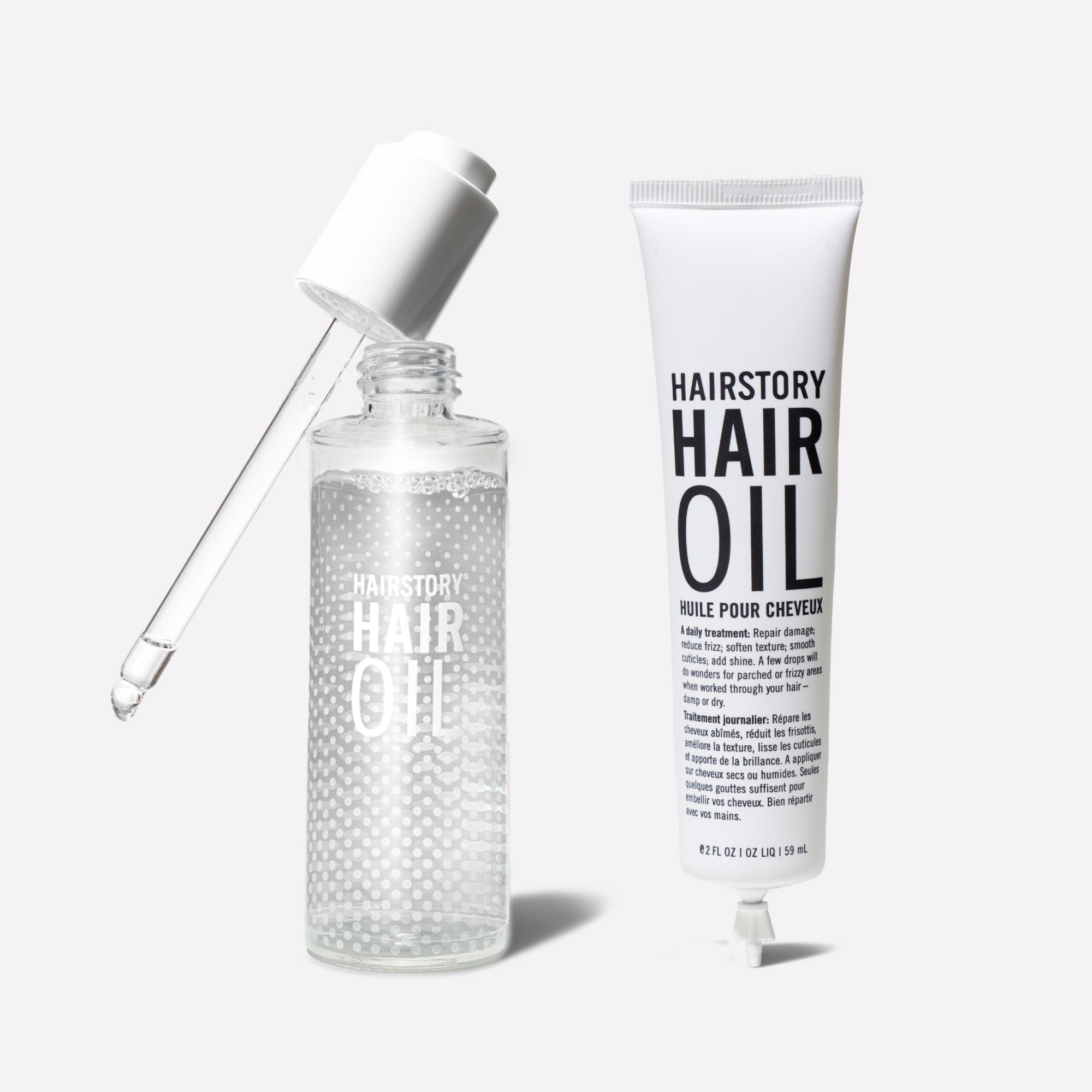

Hair Oil and Glass Bottle
View More Information
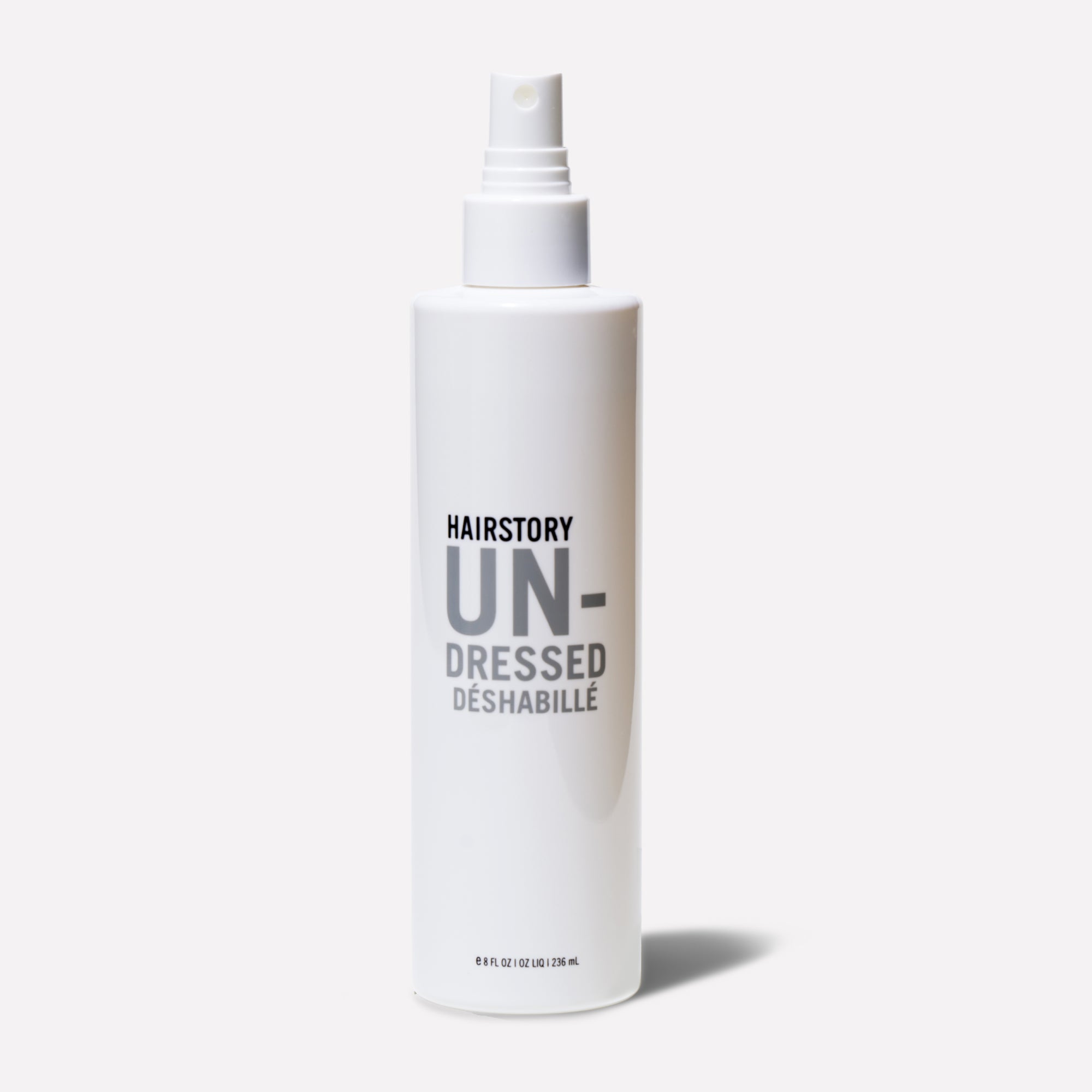

Undressed
View More Information


Powder
View More Information


Lift
View More Information


Wax
View More Information
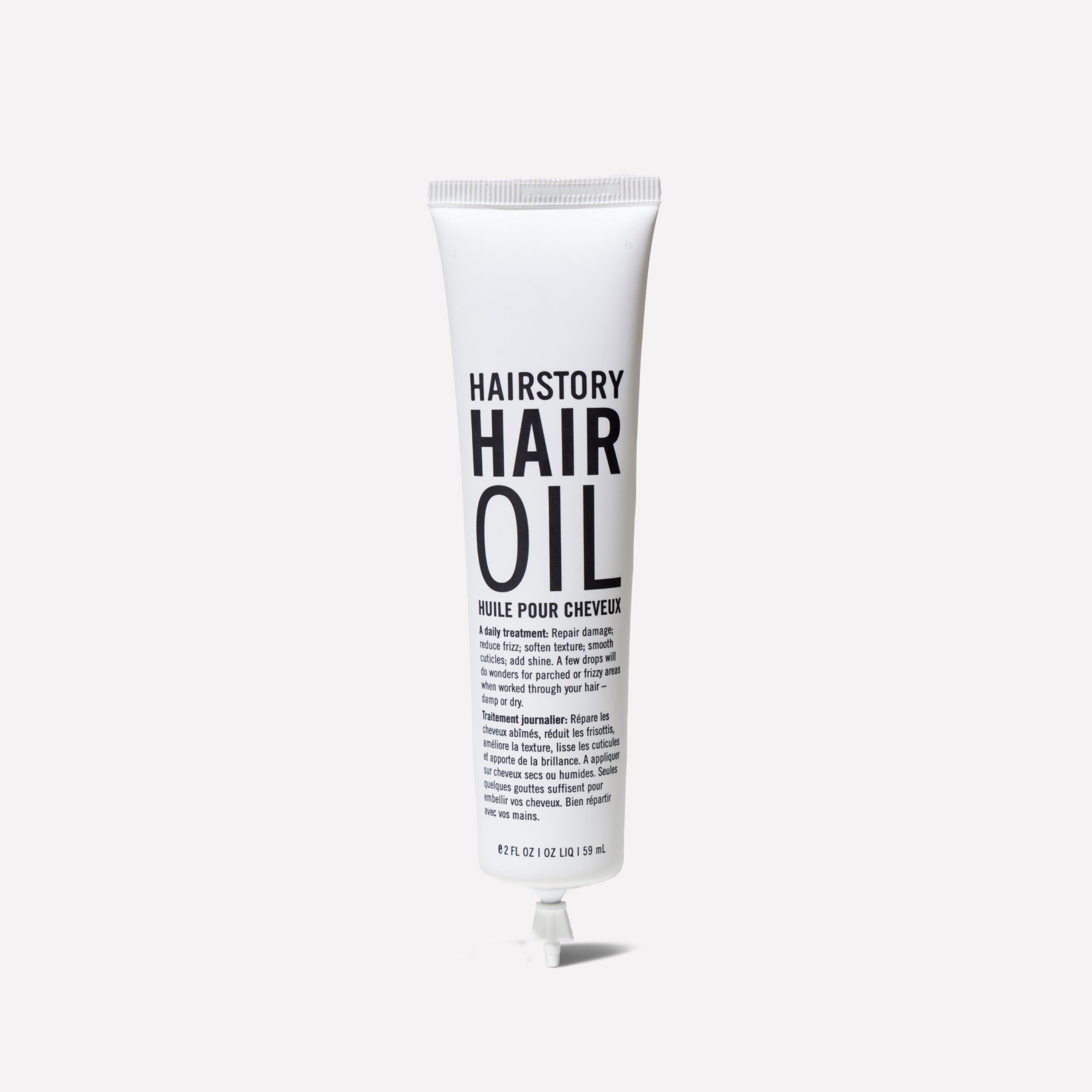

Hair Oil Refill
View More Information
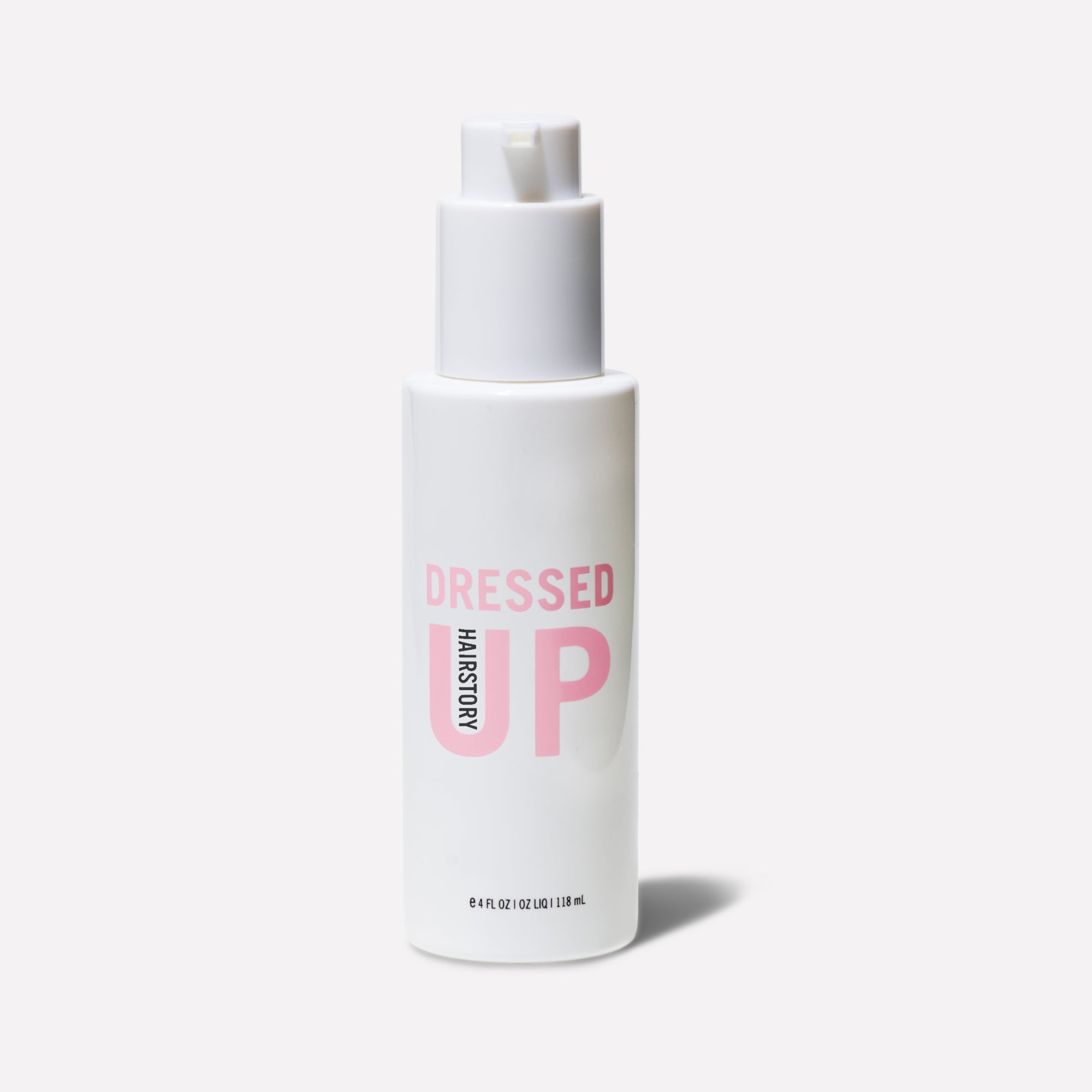
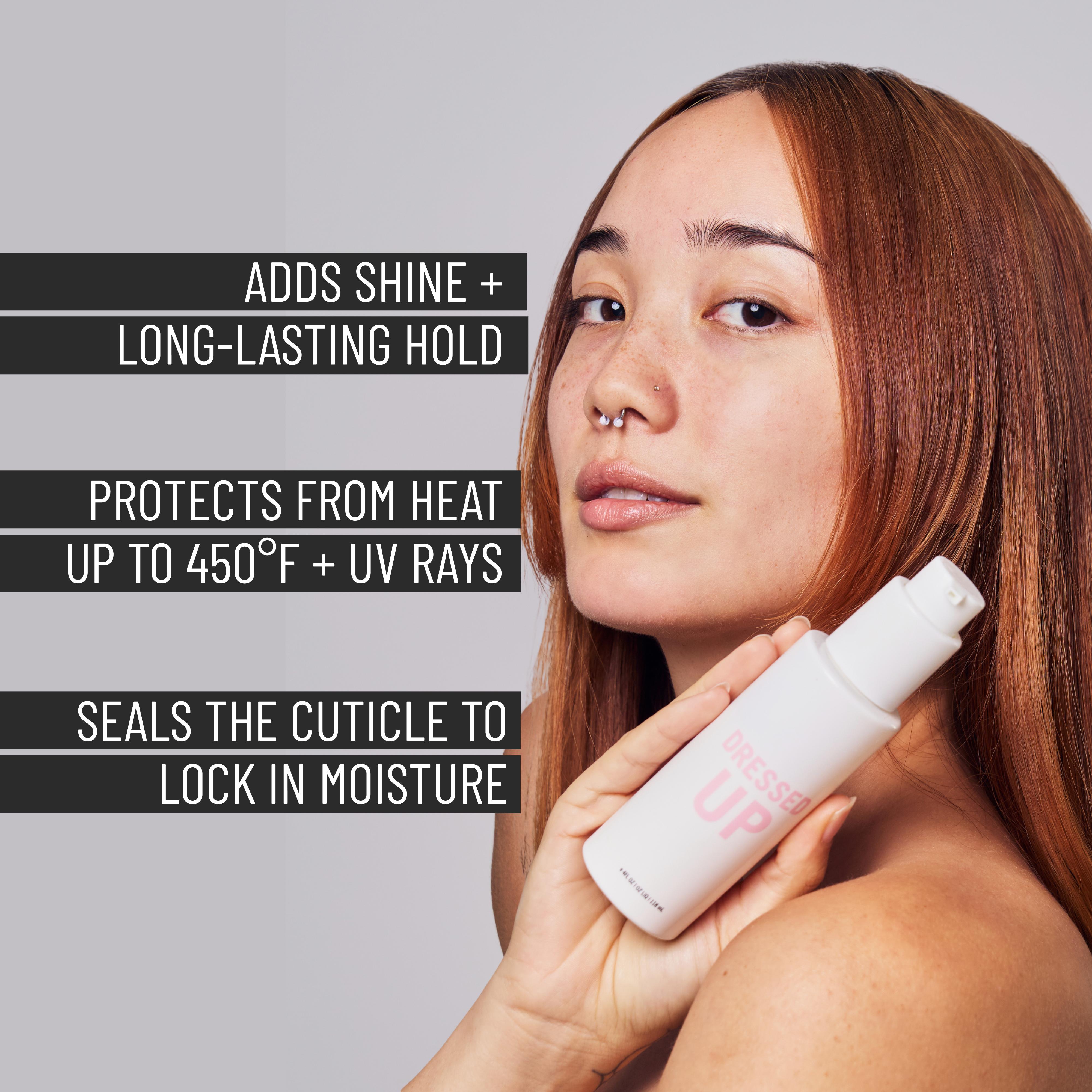
Dressed Up
Braving the Elements
As hair loses its pigment, it becomes more porous and, therefore, more prone to absorbing pollutants and hair discoloring agents, such as:
- Impure air
- Smoky environments
- Shampoos with artificial colorants
One of the easiest ways to protect your hair from things like smoke and pollution is to wear a head covering, like a hat or a scarf, when you go outside. If you notice poor air quality taking a toll on your hair, wash it regularly with a gentle cleanser.
FAQS
Do I need to revamp my look?
As you go gray, you might wonder if you need to start adding more color into your makeup routine or wardrobe. Whitney hasn’t changed her own makeup, but believes it’s up to you.
“I have had conversations with women who feel washed out with gray hair,” she says. “If this is the case, adding … a brighter lip gloss or blush can be an easy and great way to bring some additional color to your face.”
How do I know I’ll look great with gray hair—and not just older?
There’s no way of knowing what your gray hair will look like until you start growing it out. Much like curl patterns, your gray pattern will be unique to you. Not knowing what your hair will look like can make the thought of going gray even more intimidating. However, it’s important to think about why exactly you’re so hesitant to do so.
As Whitney puts it, “Growing out your natural hair color is about being unapologetically yourself. It’s about respecting, valuing, and loving yourself for more than your appearance.”
To gray or not to gray?
It comes down to what makes you happiest, whether it’s covering up your grays or fully accepting them.
“Growing my gray hair out has only increased my confidence, my self-love, my self-respect, and my empathy,” Whitney shares. “My intent is never to make anyone feel bad for dyeing their hair or to convince anyone that they need to grow out their natural hair color, but rather that they have a choice.”
Whitney’s final words of wisdom? “My encouragement would be to give it a try. You never know—you might just fall in love with your natural hair color!”




